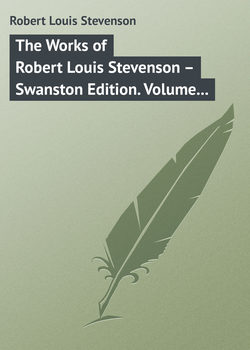Читать книгу The Works of Robert Louis Stevenson – Swanston Edition. Volume 23 - Robert Louis Stevenson - Страница 20
THE LETTERS OF ROBERT LOUIS STEVENSON
1868-1882
I
STUDENT DAYS AT EDINBURGH
To Charles Baxter
ОглавлениеThrough the jesting tenor of this letter is to be discerned a vein of more than half serious thinking very characteristic of R. L. S. alike as youth and man.
17 Heriot Row, Edinburgh, October 1872.
MY DEAR BAXTER, – I am gum-boiled and face swollen to an unprecedented degree. It is very depressing to suffer from gibber that cannot be brought to a head. I cannot speak it, because my face is so swollen and stiff that enunciation must be deliberate – a thing your true gibberer cannot hold up his head under; and writ gibber is somehow not gibber at all, it does not come forth, does not flow, with that fine irrational freedom that it loves in speech – it does not afford relief to the packed bosom.
Hence I am suffering from suppressed gibber– an uneasy complaint; and like all cases of suppressed humours, this hath a nasty tendency to the brain. Therefore (the more confused I get, the more I lean on Thus’s and Hences and Therefores) you must not be down upon me, most noble Festus, altho’ this letter should smack of some infirmity of judgment. I speak the words of soberness and truth; and would you were not almost but altogether as I am, except this swelling. Lord, Lord, if we could change personalities how we should hate it. How I should rebel at the office, repugn under the Ulster coat, and repudiate your monkish humours thus unjustly and suddenly thrust upon poor, infidel me! And as for you – why, my dear Charles, “a mouse that hath its lodging in a cat’s ear” would not be so uneasy as you in your new conditions. I do not see how your temperament would come thro’ the feverish longings to do things that cannot then (or perhaps ever) be accomplished, the feverish unrests and damnable indecisions, that it takes all my easy-going spirits to come through. A vane can live out anything in the shape of a wind; and that is how I can be, and am, a more serious person than you. Just as the light French seemed very serious to Sterne, light L. Stevenson can afford to bob about over the top of any deep sea of prospect or retrospect, where ironclad C. Baxter would incontinently go down with all hands. A fool is generally the wisest person out. The wise man must shut his eyes to all the perils and horrors that lie round him; but the cap and bells can go bobbing along the most slippery ledges and the bauble will not stir up sleeping lions. Hurray! for motley, for a good sound insouciance, for a healthy philosophic carelessness!
My dear Baxter, a word in your ear – “DON’T YOU WISH YOU WERE A FOOL?” How easy the world would go on with you – literally on castors. The only reason a wise man can assign for getting drunk is that he wishes to enjoy for a while the blessed immunities and sunshiny weather of the land of fooldom. But a fool, who dwells ever there, has no excuse at all. That is a happy land, if you like – and not so far away either. Take a fool’s advice and let us strive without ceasing to get into it. Hark in your ear again: “THEY ALLOW PEOPLE TO REASON IN THAT LAND.” I wish I could take you by the hand and lead you away into its pleasant boundaries. There is no custom-house on the frontier, and you may take in what books you will. There are no manners and customs; but men and women grow up, like trees in a still, well-walled garden, “at their own sweet will.” There is no prescribed or customary folly – no motley, cap, or bauble: out of the well of each one’s own innate absurdity he is allowed and encouraged freely to draw and to communicate; and it is a strange thing how this natural fooling comes so nigh to one’s better thoughts of wisdom; and stranger still, that all this discord of people speaking in their own natural moods and keys, masses itself into a far more perfect harmony than all the dismal, official unison in which they sing in other countries. Part-singing seems best all the world over.
I who live in England must wear the hackneyed symbols of the profession, to show that I have (at least) consular immunities, coming as I do out of another land, where they are not so wise as they are here, but fancy that God likes what he makes and is not best pleased with us when we deface and dissemble all that he has given us and put about us to one common standard of – Highty-Tighty! – when was a jester obliged to finish his sentence? I cut so strong a pirouette that all my bells jingle, and come down in an attitude, with one hand upon my hip. The evening’s entertainment is over, – “and if our kyind friends – “
Hurrah! I feel relieved. I have put out my gibber, and if you have read thus far, you will have taken it in. I wonder if you will ever come this length. I shall try a trap for you, and insult you here, on this last page. “O Baxter what a damned humbug you are!” There, – shall this insult bloom and die unseen, or will you come toward me, when next we meet, with a face deformed with anger and demand speedy and bloody satisfaction. Nous verrons, which is French.
R. L. Stevenson.
